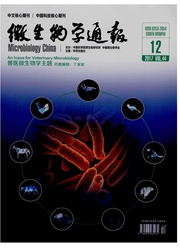

 中文摘要:
中文摘要:
禽流感不仅严重危害养禽业,而且给公共卫生造成巨大威胁。为了科学认识和积极防控禽流感,我国科学家进行了大量且富有成效的研究,取得了举世瞩目的成果。通过长期的监测,基本掌握了禽流感在我国的流行情况和进化规律;利用反向遗传操作技术和蛋白质纽学技术,发现了影响流感病毒致病力、传播力和受体结合能力的部分关键位点,阐释了其作用机制;通过对传统技术的改进和先进方法的应用,不断成功建立禽流感诊断、检测技术;新型禽流感疫苗不断涌现并逐步被推广和应用,取得了良好的免疫效果。上述成果为我国禽流感的防控奠定了良好的基础,也为后续研究提供了依据。但是禽流感的防控形势依然严峻,2013年新型H7N9病毒的出现,使禽流感的防控面临新的挑战。
 英文摘要:
英文摘要:
Avian influenza caused great harms to avian industry, and posed great threaten to public health. In order to scientifically control and prevent avian influenza, China scientist have finished a series of great work on basic and applied researches, and acquired wonderful spotlight achievements in world. Through long-term surveillance, characterists of epidemiology and evolution of avian influenza in China have been clarified. Using reverse genetics and protein techniques, the key amino acids contributing to pathogenicity and transmissibility were found out, and the mechanism behind was explored. Avian influenza vaccines were developed and popularized, accompanied with consis- tent emergence of new vaccine. These scientific researches have established firm foundation to avian influenza prevention and follow-up studies. However, avian influenza viruses, especially the novel H7N9 virus, still pose great threats to us. Therefore, in order to prevent and control avian influenza thoroughly, greater efforts on research are warranted.
 同期刊论文项目
同期刊论文项目
 同项目期刊论文
同项目期刊论文
 期刊信息
期刊信息
